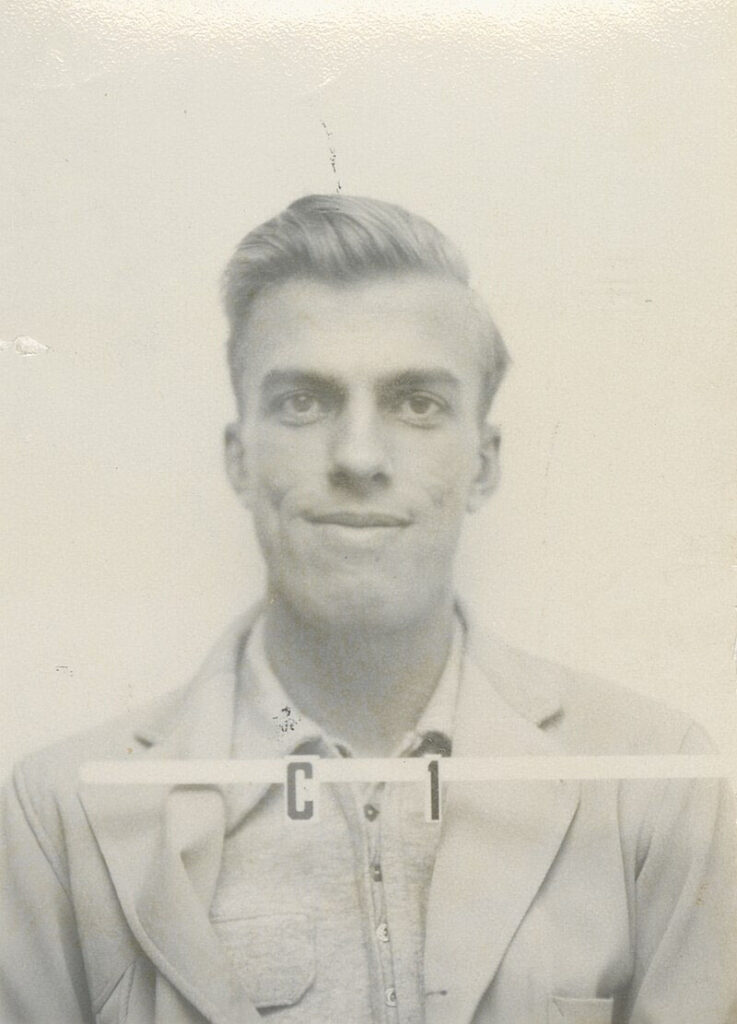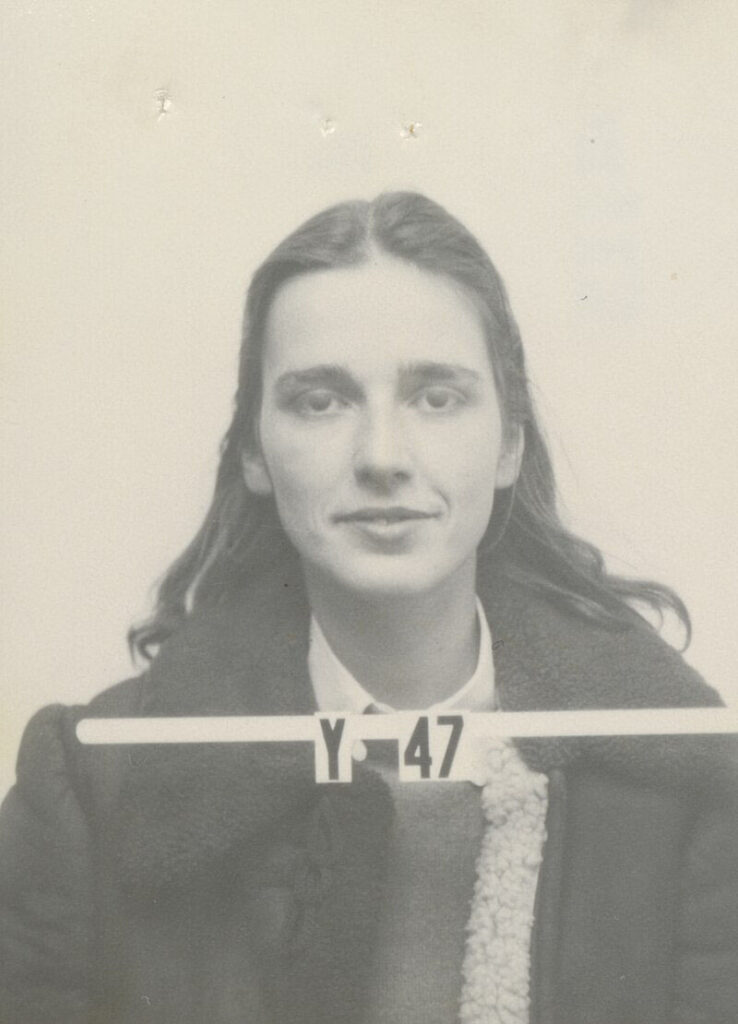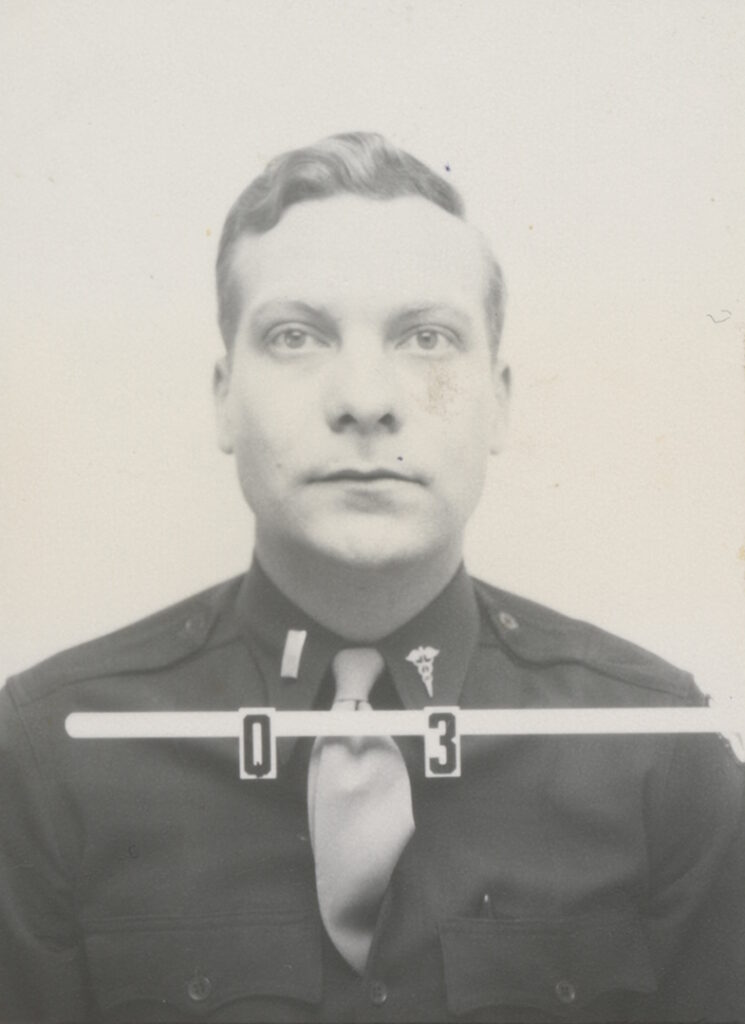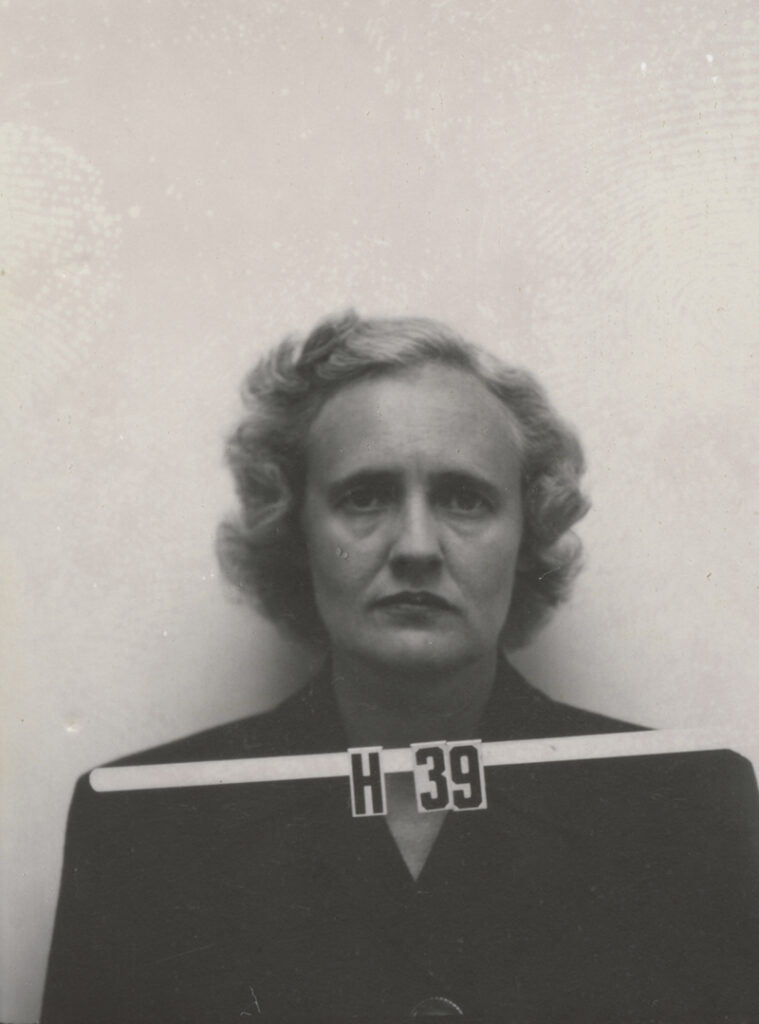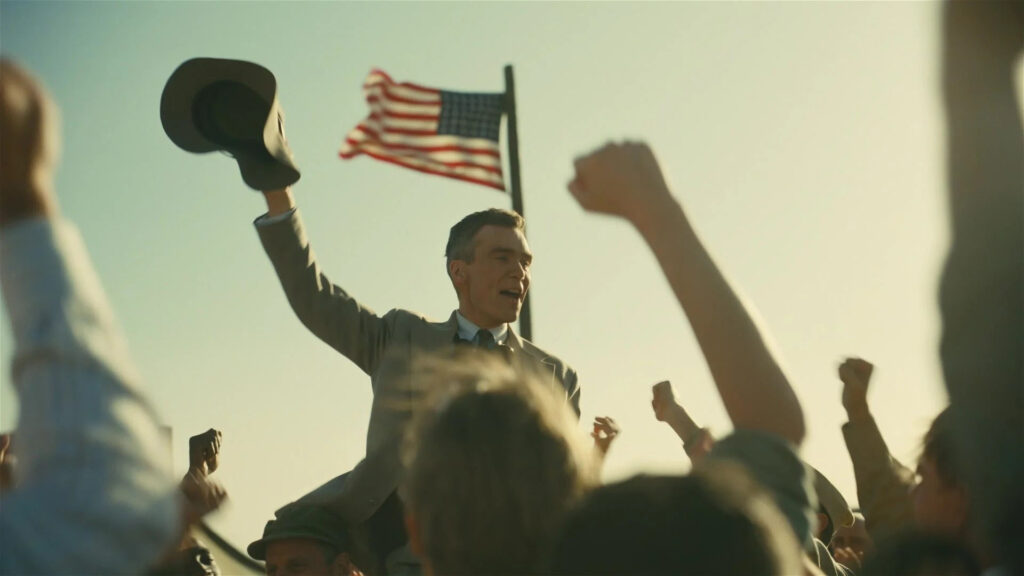
Christopher Nolan’s Academy Award winning 2023 film Oppenheimer is based on Kai Bird and Martin J. Sherwin’s 2005 biography of theoretical physicist J. Robert Oppenheimer. The movie cleverly compresses several decades of Oppenheimer’s life around his leadership in building the first atomic bomb and his subsequent political blacklisting during the McCarthy era. Although none are specifically mentioned in the movie, many people with connections to Washington University played significant roles in the creation of the atomic bomb.
Many scientists who worked with Oppenheimer or with the Manhattan Project – the secret US military and industrial program to build the atomic bomb – came to Washington University after the war, like Joseph W. Kennedy the co-discovery of plutonium who later became head of the Department of Chemistry. However, there were many others – Washington University alumni, faculty, and staff – who played key roles in the Manhattan Project, in Los Alamos, and in Oppenheimer’s life.
Los Alamos staff ID photos of Louis and Elinor Hempelmann, circa 1943.2 3
One early recruit to Los Alamos was Louis Hempelmann, Jr. Hempelmann was a 1938 graduate of the Washington University School of Medicine and radiation safety officer for the Mallinckrodt Institute of Radiology’s cyclotron. While training with Ernest Lawrence’s cyclotrons at the University of California, Hempelmann became acquainted with Oppenheimer who later asked Hempelmann to head radiation safety at Los Alamos. Among the first people to arrive at Los Alamos, Hempelmann and his wife, Elinor Pulitzer Hempelmann, became life-long friends of Robert and Kitty Oppenheimer. While the Oppenheimers were in Washington, DC testifying in the Atomic Energy Commission (AEC) security clearance hearing depicted in the movie, the Oppenheimer’s children, Peter and Toni, stayed with the Hempelmanns.4
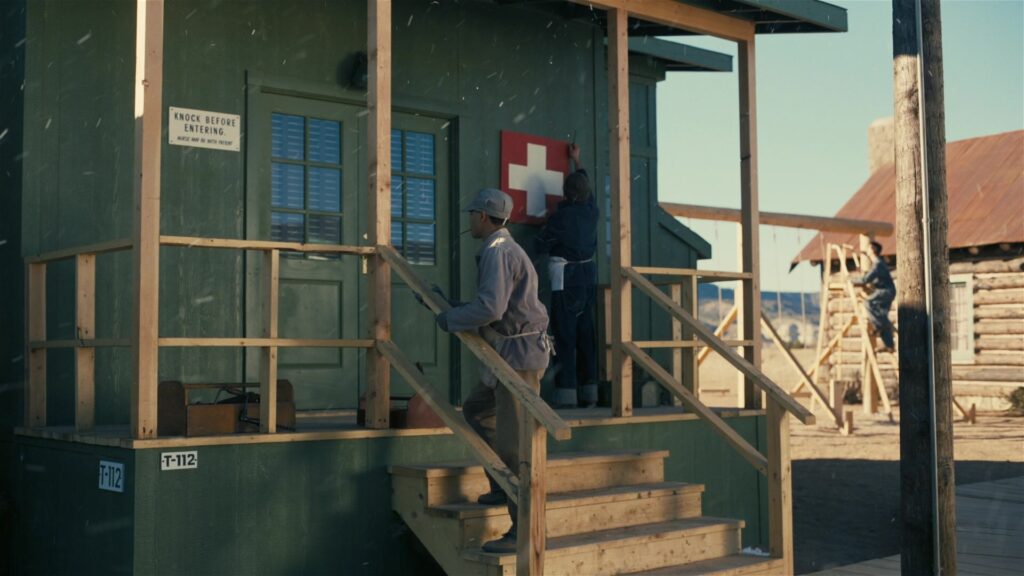
“A secret laboratory. In the middle of nowhere. Self-sufficient. Secure. Equipment, housing, the works. … It’ll need a school, stores, a church… If we don’t let scientists bring their families, we’ll never get the best. … Build a town, and build it fast.”
Dialog of Oppenheimer explaining his plan for Los Alamos to General Leslie Groves, from the movie Oppenheimer.6
The fast growing town of Los Alamos needed a hospital along with the laboratories, school, and houses for the scientists and their families. Hempelmann, head of the medical group as well as head of radiation safety, recruited the key staff of doctors and nurses and technicians needed to provide care for the growing families. The average age of the scientists and workers at Los Alamos was only 25 and the young families were growing as fast as the new town – 208 children were born there during the war.7
Practically all of the babies – including Robert and Kitty Oppenheimer’s daughter Toni – were delivered by James F. Nolan, a classmate of Hempelmann and fellow 1938 graduate of the School of Medicine. Nolan was an obstetrician and gynecologist with training in physics and radiation for the treatment of gynecological cancers.8 Nolan was recruited, like many of the other medical staff at Los Alamos, because his specialized training was an asset to the radiation safety team in addition to providing the everyday medical needs of the small town. St. Louis Children’s Hospital researcher Anne Perley, who was one of the first scientists to develop methods to measure radiation exposure, was also at Los Alamos.
Los Alamos ID photos of James F. Nolan and Anne Perley, circa 1943.9 10
Other Washington University medical center people at Los Alamos included: pediatrician and nephrologist Henry L. Barnett, another 1938 medical school graduate; two medical center technicians, Anna Mae Dickie and Ann Earp, both colleagues of School of Medicine hematologist Carl V. Moore and trained in white blood cell count assays; and a half dozen medical center nurses, including Washington University School of Nursing alumnae Harriet Smith “Petey” Petersen and Sara I. Dowson Prestwood.
As the movie shows, many of the spouses of Los Alamos worked in various capacities. Kitty Oppenheimer and Elinor Hempelmann worked in the radiation safety labs counting white blood cells of scientists handling plutonium and uranium11. In the movie, Charlotte Serber, the wife of physicist Robert Serber, is shown as Oppenheimer’s secretary. In reality, Charlotte had her own staff as the head of the Los Alamo’s library.12 Shirley Barnett, Henry Barnett’s wife, was Oppenheimer’s secretary.13
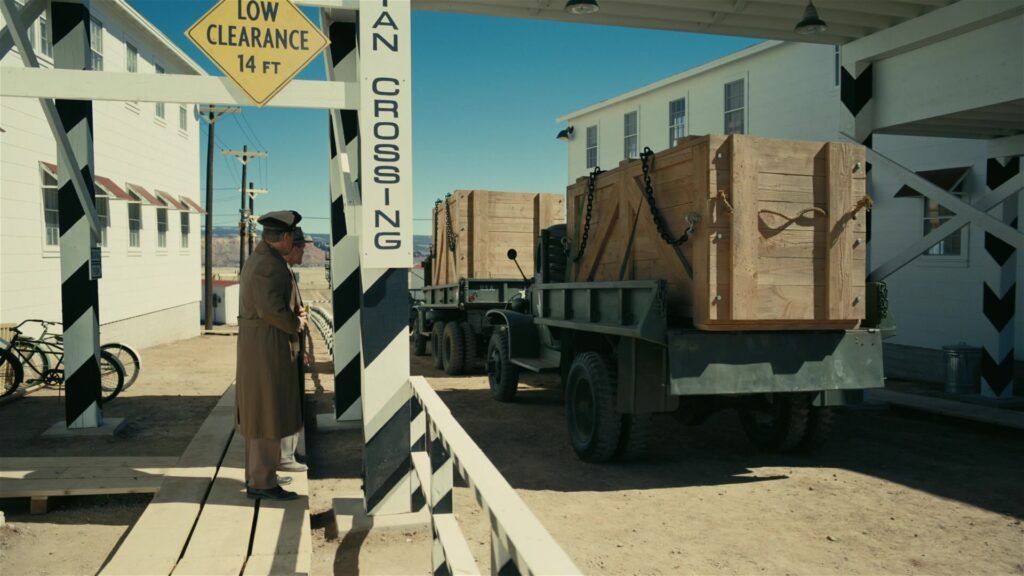
The radiation safety group was tasked with measuring the radiological effects not only at Los Alamos but also in Japan after the bombings of Hiroshima and Nagasaki. There is a scene in the movie showing two trucks driving two large crates out of Los Alamos – presumably showing the two bombs being shipped out. In reality, even before the atomic bomb was first tested, the materials for the two bombs dropped on Hiroshima and Nagasaki were already on their way across the Pacific. Nolan was pulled from his duties at Los Alamos to escort the uranium used in the bomb dropped on Hiroshima. Both Nolan and Barrett were part of the survey teams sent to Hiroshima and Nagasaki and the first Americans to enter Japan at the end of the war. Nolan later recalled what he saw as “utter devastation of the kind that is difficult to imagine”.15
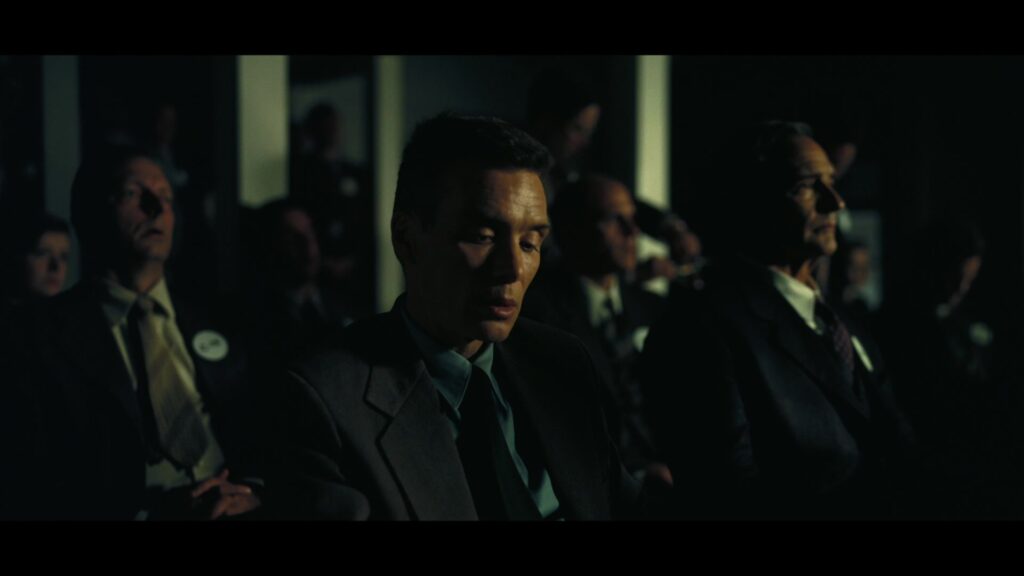
In the movie, the post-war briefing on casualties in Hiroshima and Nagasaki is given by two physicist, Robert Serber and Philip Morrison. Both were part of the survey teams to Hiroshima and Nagasaki to assess the effects of the bombs. Serber made special study of flash burns inflicted by the bomb. All of the survey team’s initial observations were compiled by Barnett into the report of the Joint Committee Manhattan District Investigation in Japan.17 Nolan also personally briefed General Groves in preparation before his testimony before the US Senate about the effects of the bomb.18
But of all the Washington University people involved with the Manhattan Project and Oppenheimer’s life, one person was especially important – physicist Arthur Holly Compton.
Continued in Part 2
- Scene of J. Robert Oppenheimer, portrayed by actor Cillian Murphy, jubilant after the Trinity test. Still from the motion picture. Oppenheimer. Directed by Christopher Nolan, performances by Cillian Murphy, Emily Blunt, Robert Downey Jr., Syncopy, Atlas Entertainment, Universal Studios, 2023. ↩︎
- Hempelmann, Louis H., Jr. Los Alamos ID photo. Historic Badges. Los Alamos National Laboratory. https://about.lanl.gov/history-innovation/badges/ ↩︎
- Hempelmann, Elinor. Los Alamos ID photo. Historic Badges. Los Alamos National Laboratory. https://about.lanl.gov/history-innovation/badges/ ↩︎
- Hempelmann, Louis H., Jr. “Louis Hempelmann Interview – Part 1.” Oral history. Voices of the Manhattan Project. Atomic Heritage Foundation. August 10, 1983. https://ahf.nuclearmuseum.org/voices/oral-histories/louis-hempelmann-interview-part-1/ ↩︎
- Scene of the hospital in Los Alamos under construction. Still from the motion picture. Oppenheimer. Directed by Christopher Nolan, performances by Cillian Murphy, Emily Blunt, Robert Downey Jr., Syncopy, Atlas Entertainment, Universal Studios, 2023. ↩︎
- Dialog, Oppenheimer speaking to Gen. Groves, Scene 56. Christopher Nolan. Screenplay of Oppenheimer, 2023. Deadline. https://deadline.com/2023/12/oppenheimer-screenplay-christopher-nolan-script-1235671868/ ↩︎
- McClenahan, Heather. “Wartime Baby Boom Left General Groves Fuming….” February 23, 2020. Los Alamos Daily Post. https://ladailypost.com/wartime-baby-boom-left-general-groves-fuming-while-parents-counted-and-counted-and-counted-their-blessings/ ↩︎
- Nolan, James L., Jr. Atomic Doctors: Conscience and Complicity at the Dawn of the Nuclear Age. Cambridge, MA: Belknap Press of Harvard University Press, 2020. ↩︎
- Nolan, James F. Los Alamos ID photo. Historic Badges. Los Alamos National Laboratory. https://about.lanl.gov/history-innovation/badges/ ↩︎
- Perley, Anne. Los Alamos ID photo. Historic Badges. Los Alamos National Laboratory. https://about.lanl.gov/history-innovation/badges/ ↩︎
- Hempelmann, Louis H. “Louis Hempelmann Interview – Part 3.” Oral history. Voices of the Manhattan Project. Atomic Heritage Foundation. August 10, 1983. https://ahf.nuclearmuseum.org/voices/oral-histories/louis-hempelmanns-interview-part-3 ↩︎
- Steeves, Brye. “Charlotte Serber: The story of the Lab’s first female Group Leader.” October 10, 2023. Los Alamos National Laboratory. https://discover.lanl.gov/publications/the-vault/the-vault-2023/charlotte-serber/ ↩︎
- Barnett, Henry L. “Henry L. Barnett, MD, Oral History.” Interviewed by Joseph Dancis. American Academy of Pediatrics, 1996. https://www.aap.org/en/about-the-aap/gartner-pediatric-history-center/oral-histories/ ↩︎
- Scene of two trucks leaving Los Alamos alluding to the delivery of the two atomic bombs. Still from the motion picture. Oppenheimer. Directed by Christopher Nolan, performances by Cillian Murphy, Emily Blunt, Robert Downey Jr., Syncopy, Atlas Entertainment, Universal Studios, 2023. ↩︎
- Nolan, James L., Jr. Atomic Doctors: Conscience and Complicity at the Dawn of the Nuclear Age. Cambridge, MA: Belknap Press of Harvard University Press, 2020. ↩︎
- Scene post-war briefing of the injuries from the atomic bombs. Still from the motion picture. Oppenheimer. Directed by Christopher Nolan, performances by Cillian Murphy, Emily Blunt, Robert Downey Jr., Syncopy, Atlas Entertainment, Universal Studios, 2023. ↩︎
- Barnett, Henry L. “Final Report of Finding of the Manhattan District Atomic Bomb Investigating Groups at Hiroshima and Nagasaki.” Medical Section. Manhattan Engineer District. U.S. Army. April 19, 1946. Atomic Bomb Disease Institute, Nagasaki University. https://www.genken.nagasaki-u.ac.jp/abcenter/manhattan/index_e.html ↩︎
- Nolan, James L., Jr. Atomic Doctors: Conscience and Complicity at the Dawn of the Nuclear Age. Cambridge, MA: Belknap Press of Harvard University Press, 2020. ↩︎

